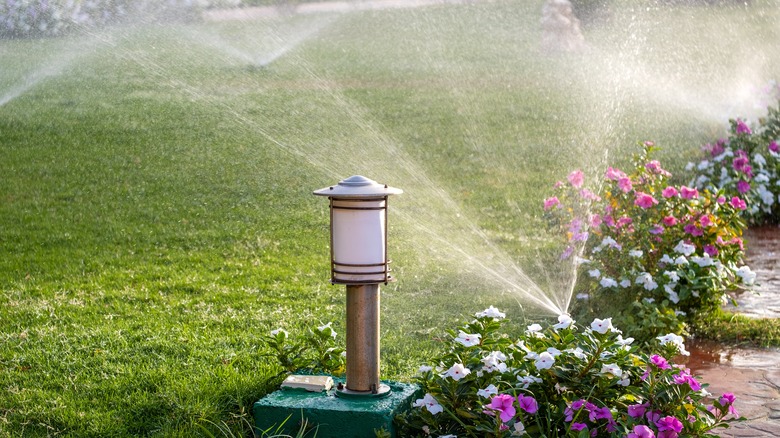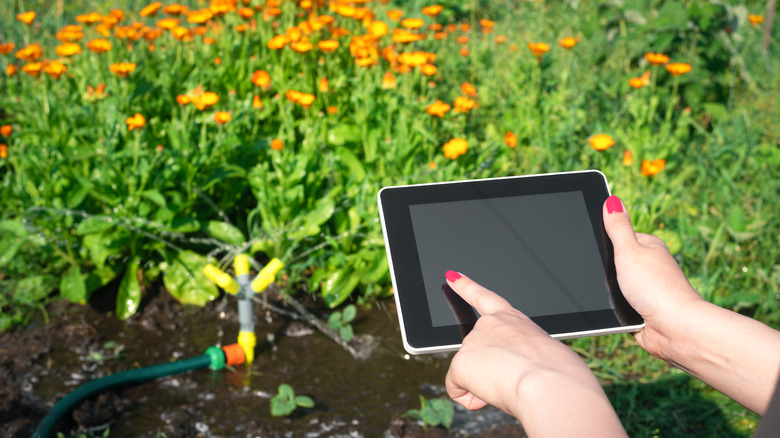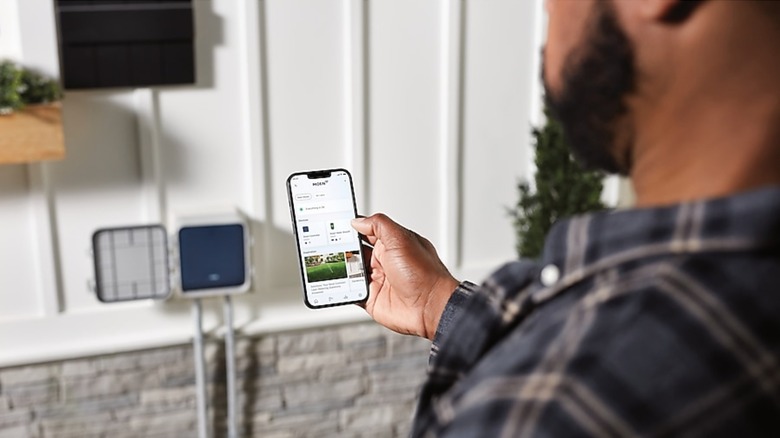A Smart Sprinkler Controller Can Help Improve Lawn Care - But Is It Worth The Cost?
With modern-day technology, your home can be smarter than you. It's not just inside your humble abode but outdoors, too. First, it was security cameras, then doorbells, and now lawn care is also getting a digital upgrade. You can run your lawn sprinklers all from an app, putting the timer systems into retirement. Switching to a smart sprinkler controller may be cost-effective, eco-friendly, and convenient; however, with manual systems getting the job done for decades–and this new upgrade averaging $80 to $300–you want to ensure it's a worthwhile investment. These electronic controllers can be worth the cost, especially if you have a sizable lawn and want to optimize your landscaping.
A smart sprinkler controller is a digital system that operates lawn irrigation, replacing standard timer or clock-based controls. There are two different ways they work. The most popular devices connect to the internet through WiFi, allowing the device to collect local weather data to create a customized watering schedule. It gives your lawn a drink when rain isn't in the forecast and holds back when nature is already on the job. Some devices use soil moisture sensors to track the water content in the soil. This system monitors how much water is being delivered to the roots and can automatically adjust so your plants get the moisture they need. Upgrading to a smart controller is an easy way to make the most of your lawn irrigation system.
Advantages of a smart sprinkler controller
Since the smart controllers work with water and/or soil moisture data, plants always get the water they need. You don't have to worry about overwatering or underwatering; root rot and yellow grass can be a thing of the past. While your grass will thank you, so will the rest of the environment as you conserve water. According to the Environmental Protection Agency, roughly 4 billion gallons of water are wasted daily in the United States due to overwatering in residential irrigation systems. With a smart controller, you can use 20 to 50% less water than with a traditional timer program. That is crucial for eco-friendly living, especially in areas with frequent droughts. Smart sprinklers may also be the answer to your lawn's water bill woes because saving water saves you money. Further, you might also qualify for a rebate just for having a smart irrigation system.
The smart controller is a set-it-and-forget-it program. You don't have to worry about manually shutting off your sprinklers during an unexpected shower or wonder if your grass will still be green when you return from vacation. But if necessary, you can always manage the program from its app. At the touch of a button, turn the system off/on, monitor upcoming waterings, and track how much water was used. It has lots of advantages and, frankly, no disadvantages, but there are a few things to look for when picking the right system for your home.
How to choose the best smart sprinkler controller
Every smart device is not created equally. It is best to look for controllers that are certified by the Environmental Protection Agency with the WaterSense label, like the Rachio 3 Smart Sprinkler Controller starting at $99.99 or Rain Bird's ST8-2.0 WiFi Smart Irrigation Timers for $195. The certification ensures your device will actually make your watering system more efficient and operational. Also, think about where the controller will be located. Not all are waterproof, so it will need to be installed inside the garage, under an awning, or you'll need to splurge on a waterproof covering, which is typically an extra $30.
You want to look for features that will best fit your needs. Automatic water irrigation apps that actually work are compatible with smart assistants like Google Home, Apple Home, and Alexa. Avoid devices with fees for accessing data or communication features that can greatly increase the average $80 to $300 cost for a controller. Also, check if the smart system matches the number of zones you have. The larger your property, the more irrigation zones you'll require to guarantee your lawn or garden gets the water it needs. However, you shouldn't pay more for a system that can control up to 16 zones, if one that manages four will work perfectly fine. With the right system, you'll save water, time, and money. Plus, you'll have an enviously green lawn.


